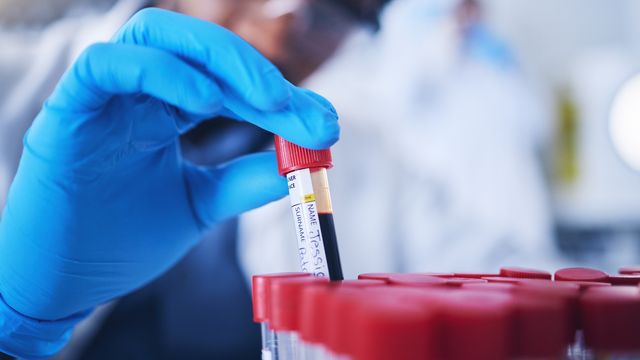Thank you. Listen to this article using the player above. ✖
Want to listen to this article for FREE?
Complete the form below to unlock access to ALL audio articles.
Researchers at Dana-Farber Cancer Institute have developed a blood-based diagnostic method for multiple myeloma (MM) and its precursor conditions.
The approach, called single-cell whole-genome and full-length transcriptome sequencing (SWIFT-seq), profiles circulating tumor cells (CTCs) in blood samples. The method offers a non-invasive alternative to bone marrow biopsies, which are currently used to assess disease stage and genetic risk.
The research is published in Nature Cancer.
A non-invasive alternative to bone marrow biopsies
MM is a bone marrow cancer often preceded by conditions such as monoclonal gammopathy of undetermined significance (MGUS) and smoldering multiple myeloma (SMM). Current risk assessment methods typically involve bone marrow biopsies and fluorescence in situ hybridization (FISH) analysis. These procedures can be painful, infrequent, and may not provide complete genetic information.
“It would be amazing if we had a blood-based test that can outperform FISH and that works in the majority of patients – we think SWIFT-seq may just be that test,” said Dr. Romanos Sklavenitis-Pistofidis, co-first author.
SWIFT-seq uses single-cell sequencing to identify and genetically profile CTCs without the need for invasive sampling. Unlike existing techniques such as flow cytometry, SWIFT-seq does not depend on cell surface markers. Instead, it detects CTCs through tumor-specific molecular barcodes.
“A lot of work has gone into the identification of genomic and transcriptomic features that predict worse outcome in MM, but we are still lacking the tests to measure them in our patients,” said senior author, Dr. Irene M. Ghobrial. “As a clinician, this is the type of next-generation test that I would want to order for my patients.”
Study results and detection rates
The study included 101 participants, ranging from healthy donors to patients with MGUS, SMM and newly diagnosed MM. SWIFT-seq detected CTCs in:
-
90% of patients with MGUS, SMM, or MM
-
95% of patients with SMM
-
94% of patients with newly diagnosed MM
These latter two results are particularly interesting, the researchers say, as these groups are the most likely to benefit from improved risk stratification and genomic surveillance.
In addition to counting CTCs, SWIFT-seq characterizes the tumor’s genetic alterations, estimates its growth rate, and assesses gene expression signatures linked to prognosis. This multi-layered analysis can be performed from a single blood sample, providing a broader picture of disease biology than standard tests.
Not only can SWIFT-seq measure multiple clinically relevant features directly from a blood sample, but it can also the provide novel insights into the biology of tumor cell circulation.
“We identified a gene signature that we believe captures the tumor’s circulatory capacity and may partly explain some of the unexplained mysteries of myeloma biology,” said Dr. Elizabeth D. Lightbody, co-first author. “This can have a tremendous impact in how we think about curtailing tumor spread in patients with myeloma and could lead to the development of new drugs for patients.”
Reference: Lightbody ED, Sklavenitis-Pistofidis R, Wu T, et al. SWIFT-seq enables comprehensive single-cell transcriptomic profiling of circulating tumor cells in multiple myeloma and its precursors. Nat Cancer. 2025:1-19. doi: 10.1038/s43018-025-01006-0
This article has been republished from the following materials. Note: material may have been edited for length and content. For further information, please contact the cited source. Our press release publishing policy can be accessed here.
This content includes text that has been generated with the assistance of AI. Technology Networks’ AI policy can be found here.
